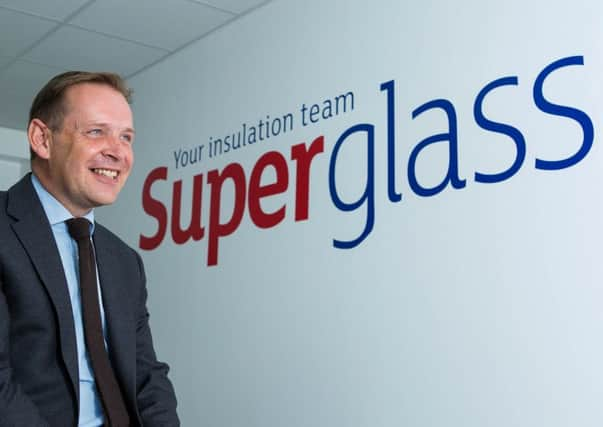Superglass chief takes helm at insulation trade body


Munro, who joined Stirling-based Superglass in September 2013 and was last year promoted to chief executive, succeeds David Travill, managing director of rival Isover Saint Gobain, at the helm of the trade body.
“I would like to thank David for his leadership and contribution, and I am pleased to be assuming the chair at such a critically important time for energy efficiency policy,” said Munro.
Advertisement
Hide AdAdvertisement
Hide Ad“Investment in the fabric of our homes and in their energy efficiency is good for the economy, increases productivity and attracts investment.”
He added: “In Scotland, our Government has already committed to making the energy efficiency of our homes an infrastructure priority and is supported by the influential Energy & Climate Change Committee, led by SNP chair Angus MacNeil. This is an encouraging position but we would like to see this realised across the UK.”
Aim-quoted Superglass said in April that it had trimmed its half-year losses to £500,000, down from £1.9 million a year earlier, following a 2 per cent rise in revenues to £10.5m.
As well as Superglass and Isover Saint Gobain, Mima represents fellow insulation makers Knauf Insulation and Rockwool.
Sarah Kostense-Winterton, executive director of the organisation, said: “We are looking forward to working with Ken at the helm to realise the potential of making the energy efficiency of our homes a strategic infrastructure need across the UK.
“We need to protect consumers over the long-term from energy price volatility and from fuel poverty, whilst substantially reducing the UK’s carbon emissions. Therefore, it has never been more pressing to ensure that energy efficiency delivers for consumers, improves their homes and keeps our communities energy secure.”
